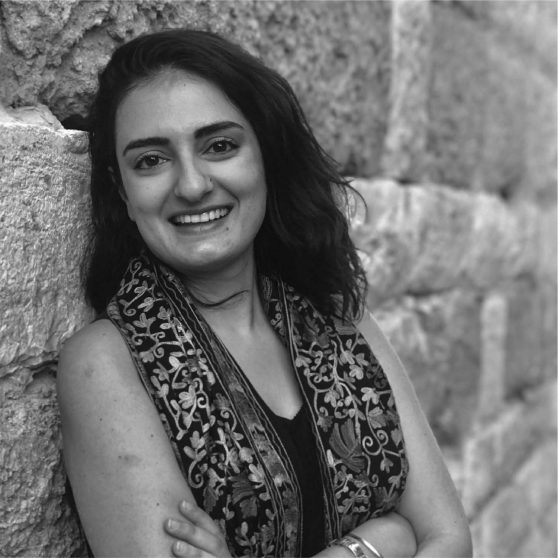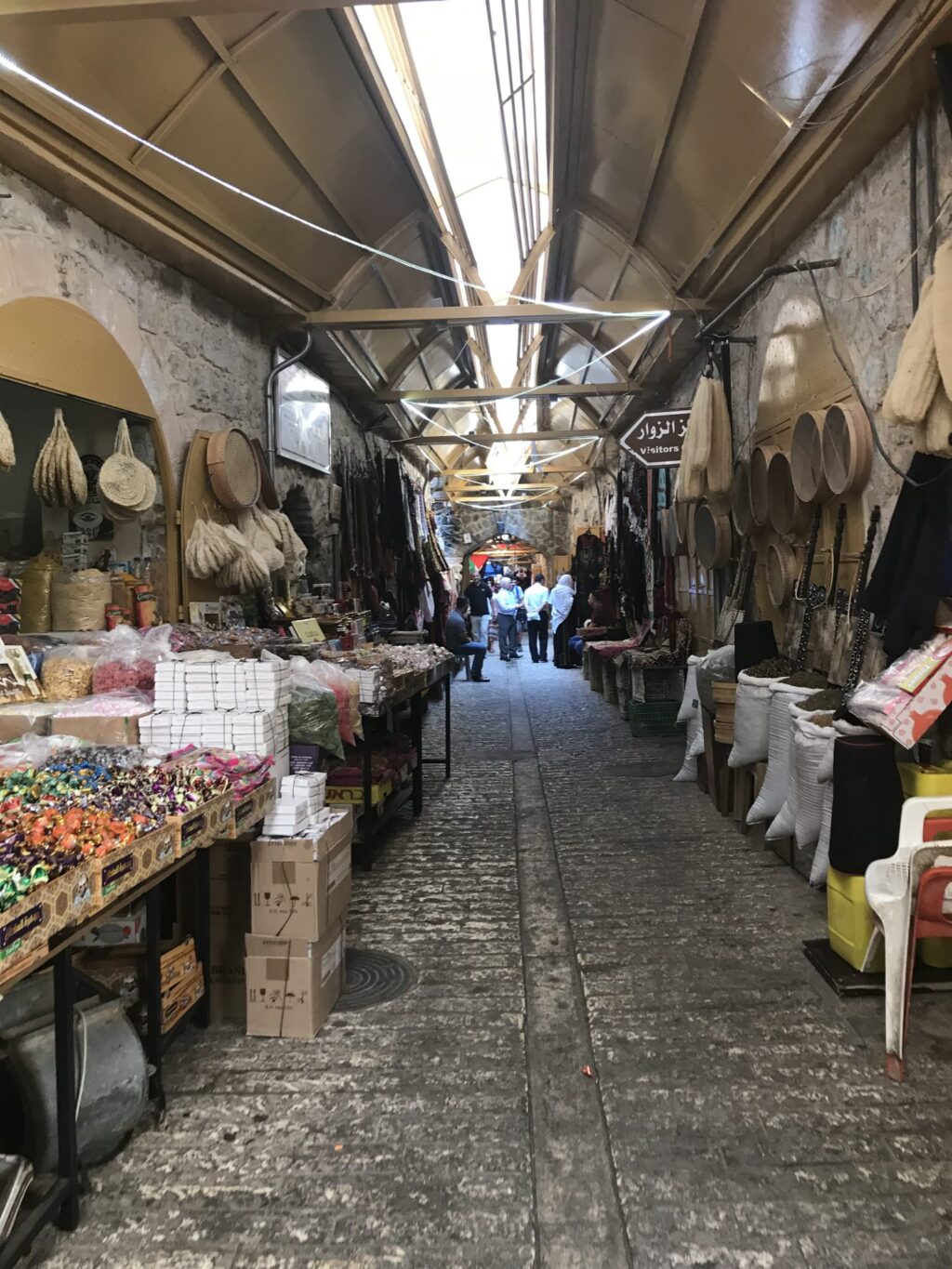2024 PhD in Architecture Graduates: Émélie Desrochers-Turgeon and Rana Abughannam
September 10, 2024
The Azrieli School of Architecture & Urbanism’s PhD in Architecture program celebrates two graduates in 2024, both of whom are working as tenure-track faculty in Canadian universities.
Dr. Émélie Desrochers-Turgeon defended her dissertation, Land, Science and Architecture: Politics of Scale in 1856–1914 Ottawa, on August 21. She is now an assistant professor at the Dalhousie University School of Architecture.
The dissertation is “a timely study about how settler colonial technologies were utilized to centralize political power in Ottawa and to turn Canada into a coherent nation-state in the modern sense at the turn of the 20th century,” said External Examiner Dr. Zeynep Celik Alexander. “The result is an extraordinarily detailed account of the material culture of settler colonialism in Canada.”
Dr. Rana Abughannam defended her dissertation, The Counter-Colonial: The agency of architectural rehabilitation as a form of resistance in Hebron, Palestine, on April 12. She joined the School of Architecture and Landscape Architecture at the University of British Columbia as an assistant professor last year.
Abughannam is one of the five 2024-2025 recipients of the Faculty Fellowship to Advance Equity in Architecture awarded by the Association of Collegiate Schools of Architecture (ACSA).
Émélie Desrochers-Turgeon

EXAMINATION BOARD
Internal examiner: Dr. David Hugill
Associate Professor Urban geography and North American cities; Imperial and colonial urbanisms; Urban political economy and the “Sharing Economy”, Carleton University
External examiner: Dr. Zeynep Çelik Alexander
Associate Professor of Art History and Archaeology Columbia University
PHD ADVISORY COMMITTEE:
Supervisor: Dr. Federica Goffi, Professor, Co-Chair PhD Architecture, ASAU, CU
Advisor: Dr. Catherine Bonier, Assoc. Prof., ASAU, CU
Advisor: Dr. Zoe Todd, Assoc. Prof., Simon Fraser University
Abstract

Land, Science and Architecture: Politics of Scale in 1856–1914 Ottawa
Settler-colonial regimes of city making in Ottawa have incorporated the built environmental as markers of a liberal, benevolent and rational government that both displays and conceals its extractivist histories and agendas. This dissertation looks at some of those contradictory assemblages shaping Ottawa as a grounded place and a settler-state capital. It looks at the sites and architectures of state scientific institutions, mainly the Central Experimental Farm and the Geological Survey of Canada during the late 19th and early 20th century to probe the architectural processes that supported the material and imagined relationship to land in Canada. It asks how did the settler colonial state imagine a new geography? What representations were employed to commodify land?
This dissertation seeks to historicize and problematize architecture’s intertwinement with imperial networks and settler colonial imaginations of space. It argues that architectural expertise intersected with centralized regimes of control in Ottawa, created a new geography to structure human and non-human lives into imperial orders and naturalized settler colonialism into local and sub-continental geographies.
Examining the ground as medium and the ground as subject fusing human and material geographies, chapters one to five are structured into five “land” processes: bordering, inventorying, improving, objectifying and displaying. Each of the chapters center a building to ground and orient the analysis in the context of Ottawa during the late Victorian era and moves from large to small in scale. The sixth and final chapter offers an epistemic reflection that ties those four sites together and speculate on practices of “grounding.” Taking a multi scalar approach, this dissertation aims to uncover of the strategies of strategies through writing land into architectural histories to introduce multi-species and non-human agents into these histories and to ask how the land received and resisted those processes.
Rana Abughannam

EXAMINATION BOARD
Internal examiner: Dr. Sheryl-Ann Simpson
Associate Professor Migration, place and citizenship; Environmental justice, health and well-being; Spatial analysis (participatory, quantitative, qualitative, interpretive), Carleton University
External examiner: Dr. Anooradha Iyer Siddiqi
Assistant Professor, Architecture Department at Barnard/Columbia
PHD ADVISORY COMMITTEE:
Supervisor: Dr. Ozayr Saloojee, Prof., ASAU, CU
Advisor: Dr. Federica Goffi, Professor, Co-Chair PhD Architecture, ASAU, CU
Advisor: Dr. Salim Tamari, Sociologist, Birzeit University
Abstract

The Counter-Colonial: The agency of architectural rehabilitation as a form of resistance in Hebron, Palestine
The old city of Hebron in Palestine presents an extreme condition of a colonized space where historic and religiously significant built heritage is overlapped by Israeli colonial infrastructure, including settlements, checkpoints, watchtowers, and barricades. Hebron’s built heritage has become the locus where counter-colonial tactics are deployed in response to the ongoing settler colonial project and where Hebron Rehabilitation Committee (HRC) has responded to the colonial structure through strategies of restoration, reclamation, and emancipatory architectural practice. This thesis proposes the notion of the counter-colonial as a conceptual and mobilizing framework for tactics of resistance against the ongoing settler colonial project.
The counter-colonial establishes epistemological, methodological, and interpretive resistance tactics that recognize the setter-colonial project and mobilize within and beyond its limitations through multiple forms and transformations. These tactics are active, indigenous, bottom-up, and constant responses to and against a colonial project. They offer novel, innovative, and alternative processes that reclaim and reinforce Palestinians’ agency over their lands, actions, narratives, and existence.
As a counter-colonial research project, this dissertation prioritizes epistemic reconsideration, slow learning, and intimate uncovering, promoting the methods of countering as investigative probing rather than problem-solving. Focusing on HRC’s rehabilitation and governance efforts, this thesis underscores three counter-colonial tactics: (1) counter-governance, where the HRC has taken a semi-governmental role to protect and serve the Hebronites, becoming stewards of the site; (2) counter-heritage, where the HRC has employed the UNESCO World Heritage Site designation as a tool to advocate for the Palestinian cause; and (3) counter-evidence, where the HRC’s documentation and archival work are presented in legal contexts as proof of Palestinian land ownership. Following an analysis of these tactics, the dissertation concludes that counter-colonial tactics are mobilized through four forms: spatial action, material force, representational process, and symbolic meaning.
About the PhD in Architecture
The PhD in Architecture program at the Azrieli School of Architecture & Urbanism is an innovative, comprehensive doctoral program that fuses research with critical practice in architecture through the combined exploration of a dissertation and an epistemic object, which is uniquely defined in relation to the research.
The program’s exceptionally talented and thoughtful students undertake original, speculative, and experimental research. Doctoral projects draw on the interrelated reflective aspects of architecture, design, and material processes. The PhD students explore a range of media that support their investigations, including film, drawing, modeling, and mapping.
The PhD rigorously prepares graduates for academic and professional fields.
The PhD Program in Architecture helps form reflective practitioners and critical thinkers who will contribute to both practice and academia, challenging current and dominant understandings of architecture practice and pedagogy and contributing to the renewal of architectural knowledge.